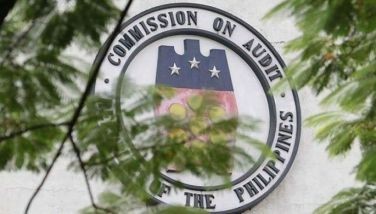SEC tags Filinvest as being involved in insider trading
July 31, 2002 | 12:00am
The Securities and Exchange Commission (SEC) has tagged the Gotianun-owned Filinvest Development Corp. (FDC) as one of those involved in the insider trading earlier this year of its property subsidiary Filinvest Land Inc. (FLI).
Jose Tomas Syquia, director of the SEC’s Compliance and Enforcement Department, had written FDC chairman and CEO Andrew Gotianun to explain or comment within 15 days on the results of the agency’s investigation report on FLI tading.
He said the probe detailed "how FDC sold 39 times FLI securities while in possession of material non-public information, particularly the actual bond conversion price."
However, FDC president Josephine G. Yap denied the SEC’s allegation in a statement issued late yesterday.
Yap strongly maintained that all actions taken by the company ultimately redounded to the best interest of all the shareholders of FLI and were all properly disclosed to the SEC. FDC has referred the matter to its legal counsel for study and appropriate response.
FDC and FLI are among the very few property based companies that have withstood the financial crisis and in fact continue to grow despite the difficult economic conditions. The group has paid more than P12.5 billion of debts that matured in the last nine months alone, mostly in the form of dollar convertible bonds.
Last Feb. 5, the FDC-controlled FLI disclosed to the Philippine Stock Exchange that it had issued P1.2 billion worth of convertible bonds to Reco Grandhomes Pte. Ltd, a company managed by GIC Real Estate Pte. Ltd. of Singapore, a subsidiary of the Government of Singapore Investment Corp. Pte. Ltd. which, in turn, already owns 500 million shares or about 12 percent of FLI.
Aside from having the option of converting into common stocks at any time within five years, the conversion price was pegged between P1.70 to P1.875 per share, way below the stock’s prevailing market price then of P2.38.
As a result, FLI shares steadily slid below the P2-mark as investors dumped the stocks. However, the issue price has steadily recovered since then.
FLI earlier explained that the lower-than-market conversion price it has pegged on the convertible bond issue was fairly valued since it was based on a predetermined formula, given the stock market conditions at the time of negotiations.
Negotiations with Reco started in mid-December 2001 when the stock market was still in a slump. With an original target closing date of Jan. 15, 2002, the parties then projected that share prices would hover at P1.72, the average for the last two trading weeks of December.
FLI said it made the disclosure within the required timeframe under PSE regulations. While pricing negotiations were held in December, it added, the transactions could not be considered final until due diligence, legal documentation and other matters were agreed upon and that any premature disclosure may have derailed the deal.
Jose Tomas Syquia, director of the SEC’s Compliance and Enforcement Department, had written FDC chairman and CEO Andrew Gotianun to explain or comment within 15 days on the results of the agency’s investigation report on FLI tading.
He said the probe detailed "how FDC sold 39 times FLI securities while in possession of material non-public information, particularly the actual bond conversion price."
However, FDC president Josephine G. Yap denied the SEC’s allegation in a statement issued late yesterday.
Yap strongly maintained that all actions taken by the company ultimately redounded to the best interest of all the shareholders of FLI and were all properly disclosed to the SEC. FDC has referred the matter to its legal counsel for study and appropriate response.
FDC and FLI are among the very few property based companies that have withstood the financial crisis and in fact continue to grow despite the difficult economic conditions. The group has paid more than P12.5 billion of debts that matured in the last nine months alone, mostly in the form of dollar convertible bonds.
Last Feb. 5, the FDC-controlled FLI disclosed to the Philippine Stock Exchange that it had issued P1.2 billion worth of convertible bonds to Reco Grandhomes Pte. Ltd, a company managed by GIC Real Estate Pte. Ltd. of Singapore, a subsidiary of the Government of Singapore Investment Corp. Pte. Ltd. which, in turn, already owns 500 million shares or about 12 percent of FLI.
Aside from having the option of converting into common stocks at any time within five years, the conversion price was pegged between P1.70 to P1.875 per share, way below the stock’s prevailing market price then of P2.38.
As a result, FLI shares steadily slid below the P2-mark as investors dumped the stocks. However, the issue price has steadily recovered since then.
FLI earlier explained that the lower-than-market conversion price it has pegged on the convertible bond issue was fairly valued since it was based on a predetermined formula, given the stock market conditions at the time of negotiations.
Negotiations with Reco started in mid-December 2001 when the stock market was still in a slump. With an original target closing date of Jan. 15, 2002, the parties then projected that share prices would hover at P1.72, the average for the last two trading weeks of December.
FLI said it made the disclosure within the required timeframe under PSE regulations. While pricing negotiations were held in December, it added, the transactions could not be considered final until due diligence, legal documentation and other matters were agreed upon and that any premature disclosure may have derailed the deal.
BrandSpace Articles
<
>
- Latest
- Trending
Trending
Latest
Trending
Latest
Recommended






























